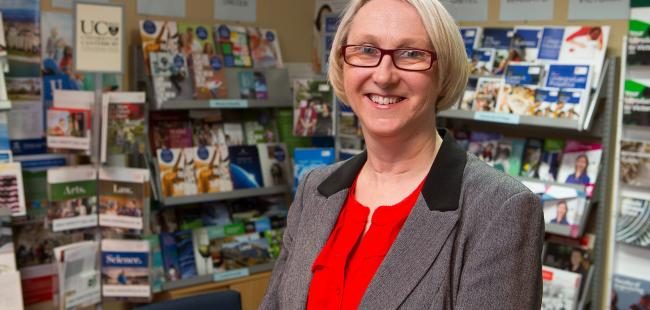

Dropping the Drop Out Rate
New Zealand is lagging well behind world standards, with one of the lowest reported higher education qualification completion rates in the OECD, and significantly below that of our closest neighbour, Australia[i].
With a dropout rate of over 10% each year of a New Zealand degree programme, it could suggest that students are not totally prepared for the world of university and its choices.[ii]
Diocesan Career Development Services Director, Liz Morris, has spent more than a year investigating the challenges of transitioning from school to university and has identified a number of factors which she says can make the difference between success and failure for first year students.
Course choice is critical: A study at the University of Auckland revealed that one of the main factors in helping high school students through the transition from school was course choice; balancing doing something they enjoyed, with ensuring they choose the subjects that may be necessary to their university course. Universities want students to be intrinsically driven by their own values and ethics, not extrinsically by their parents, peers or the job they may get at the end of the course.
The first six weeks are crucial: Research shows that the first six weeks are crucial to a successful transition. This is when factors such as homesickness, loneliness, financial pressure and isolation can overwhelm a new student.[iii] Parental support during this time can be the difference between make or break. Universities are also introducing initiatives that help students cope with two main issues that are seen as most problematic for first year students – avoidance and transitional anxiety.
Understanding University Culture: It can take time to adjust to the new learning environment. Whereas school students may receive high levels of individual feedback and personal support, universities want motivated, self-directed, self-regulated learners who will take responsibility for their own learning.
“No one cares if you don’t go to lectures, or don’t do your assignments or don’t study, it is up to you. I didn’t realise how helpful my teachers really were.” Student, 2015 [iv]
Managing Expectations: Another factor to contend with in making the leap to university is students’ expectations, with 90% of students expecting to perform as well or better than at school, compared to less than 25% of university and faculty staff with the same expectations.
“I thought I was ready for university but I was overawed by everything, the size, the system and not having my friends around for support. I just tended to do what everyone else did.” Student, 2015. [v]
A Sense of Belonging: Belonging is critical in student’s completing and excelling in their studies and may be one reason why part time students are more likely to drop out than full time.
Universities do not expect first year students to have all the learning and emotional skills they need to succeed, when they arrive on day one. Many offer programmes that support academic and emotional transition: academic tutoring, mentoring, faculty events and hall of residence pastoral care programmes that that will give students a sense of belonging.
Liz Morris said: “Higher education is the primary destination for many Diocesan students with 95% transitioning directly to university after year 13, and the remaining 5% embarking on a gap year, most often with the intention to go to university at a later date.
“It’s my job to help them choose a course they love that plays to their strengths, a university they feel comfortable with, and prepare them for the differences in context, culture and expectation. We have many ways of doing this, not just from visiting a university, but actually talking students through the skills needed to thrive in the university learning environment – how to write essays, manage time and read academic texts.
“Universities are wanting autonomous learners, with emotional resilience and intelligence.[vi] At Diocesan, we present additional challenges, not just academically, but in leadership roles, work experience, sport and cultural activities to students. However, at the end of the day students can only learn about university from experience. Schools and parents can only help them to a certain point and they have to take what they learn and navigate the experience for themselves.”
[i] Australian Department of Education. (2013). Higher education attrition, success and retention rate tables for the 2012 full year.
[ii] MOE. (2014). Profile & Trends 2013: New Zealand’s Tertiary Education System.
[iii] Elnagar, H., Perry, L. G., & O’Steen, B. (2011). Preparing people to make a difference: Transferable lessons from a first-year leadership development programme in New Zealand. A Practice report. The International Journal of the First Year in Higher education, 2(1), 56-62.
[iv] Survey Liz Morris, 2015
[v] Survey Liz Morris, 2015
[vi] Madjar, I., McKinley, E., Deynzer, M., & Van der Merwe, A. (2010). Stumbling Blocks or stepping stones? Students’ Experience of Transition from Low-Mid Decile Schools to University. University of Auckland: Starpath Project, The University of Auckland
